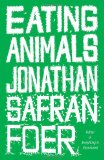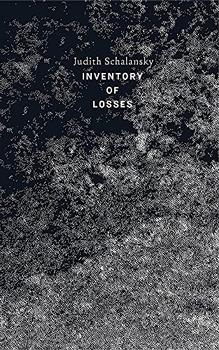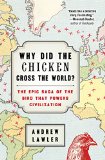Summary | Excerpt | Reading Guide | Reviews | Beyond the book | Read-Alikes | Genres & Themes | Author Bio

Critics' Opinion:
Readers' Opinion:
First Published:
Nov 2009, 352 pages
Paperback:
Sep 2010, 368 pages
 Book Reviewed by:
Book Reviewed by:
Cindy Anderson
Buy This Book
I love sushi, I love fried chicken, I love a good steak. But there is a limit to my love. - Jonathan Safran Foer
Eating Animals is, at times, an emotionally tough read. It describes the miserable lives and often horrible deaths of poultry, cows, pigs and fish that are bred (or caught) for human consumption. You may want smelling salts for some of the passages that describe what happens to the animals that aren't yet dead when they get near the end of the conveyor. Nevertheless, this is a book that everyone should read, vegetarian or not. It is didactic without being dull, it presents its arguments without preaching, it manages to be both approachable in style and appealing to educated readers, and it offers up new arguments in addition to some familiar ones.
One of the elements that sets Foer's book apart from others in this genre is that he begins and ends with what he calls "Storytelling." The first chapter reminisces lovingly about his grandmother's cooking, and explains her relationship with food, which was shaped in part by her experiences as a young Jew in Europe during WWII. (She keeps kosher, but is not a vegetarian). After talking about his grandmother, Foer briefly describes his path to a vegetarian lifestyle, which didn't begin in earnest until after his son was born. It was at that point that he truly realized, "food matters." And so he began an exploration into how his food winds up on his plate. That journey resulted in this book, and, for Foer, a metaphorical new story in his life as a committed vegetarian. By using the metaphor and the device of "storytelling" as the framework of the book, Foer allows readers to accompany him on his journey. This means sharing his moments of resoluteness, guilt, ambivalence, anger, and love (of food, family, sharing) that punctuate the book.
For me, one of the issues of ethical vegetarianism that has always been problematic is the feeling that my efforts just won't matter. Just because I choose not have chicken for dinner, what ripple effect, if any, will that have on the poultry industry? Foer, to his credit, honestly admits that he cannot subscribe to "that quaint notion that everyone can make a difference." But our choices, he says, do influence others, because most people don't eat in isolation. Although he calls vegetarianism a personal choice, Foer also finds the idea of sharing one's knowledge (about where meat comes from) valuable.
Foer never tries to argue that animals are equal to humans. His focus is the pain and suffering caused by factory farms. He believes that animals do deserve a reasonably comfortable existence that does not include living in a cage too small to turn around in, or being forced to give birth to litter after litter of young, and a death that does not include being boiled alive, beaten to death, or sadistically tortured. Since these things happen at factory farms despite humane efforts, Foer feels that the ethical course is to stop consuming their products.
The argument that struck me as the one Foer really wants to make doesn't appear until close to the end of the book. He says, simply, that we do not need to eat animals to survive, and since animals raised and killed for our consumption do suffer (as he has shown by this point in the book), we should not eat them. Furthermore, meat and fish may taste good to us, but we human beings are evolved and intelligent enough to make choices about what we eat that go beyond just what "tastes good." We can choose to eat other things because we know that it's the right thing to do.
The book comes full circle in its final chapter, also called "Storytelling." It focuses on the Thanksgiving turkey, and reveals how difficult Foer himself finds it to let go of the sort of Thanksgiving (with the turkey as its centerpiece) that he remembers from his childhood. Yet, after consideration, he realizes that it is not the turkey that is important at the Thanksgiving meal, but the people around the table. And, he says, making a moral decision not to support factory farming is of greater importance to him than continuing the turkey-eating part of the tradition. Perhaps Foer's vision is idealistic, but it is hopeful. And one of the loveliest qualities of Eating Animals is its hopefulness, not just for animals but for human beings as well.
One other mention: you will be missing out if you ignore the 60 pages of notes and references at the end of the book. They provide interesting, additional information that's not included in the main text. If you find it too disruptive to flip back and forth as you read, try skimming through them after you have finished. The book even has an alphabetized index in the back.
![]() This review was originally published in The BookBrowse Review in January 2010, and has been updated for the
October 2010 edition.
Click here to go to this issue.
This review was originally published in The BookBrowse Review in January 2010, and has been updated for the
October 2010 edition.
Click here to go to this issue.

If you liked Eating Animals, try these:

by Judith Schalansky
Published 2021
Each disparate object described in this book - a Caspar David Friedrich painting, a species of tiger, a villa in Rome, a Greek love poem, an island in the Pacific - shares a common fate: it no longer exists, except as the dead end of a paper trail.

Why Did the Chicken Cross the World?
by Andrew Lawler
Published 2016
From ancient empires to modern economics, veteran journalist Andrew Lawler delivers a sweeping history of the animal that has been most crucial to the spread of civilization across the globe - the chicken.





The House on Biscayne Bay
by Chanel Cleeton
As death stalks a gothic mansion in Miami, the lives of two women intertwine as the past and present collide.

The Flower Sisters
by Michelle Collins Anderson
From the new Fannie Flagg of the Ozarks, a richly-woven story of family, forgiveness, and reinvention.

The Funeral Cryer by Wenyan Lu
Debut novelist Wenyan Lu brings us this witty yet profound story about one woman's midlife reawakening in contemporary rural China.
Your guide toexceptional books
BookBrowse seeks out and recommends the best in contemporary fiction and nonfiction—books that not only engage and entertain but also deepen our understanding of ourselves and the world around us.